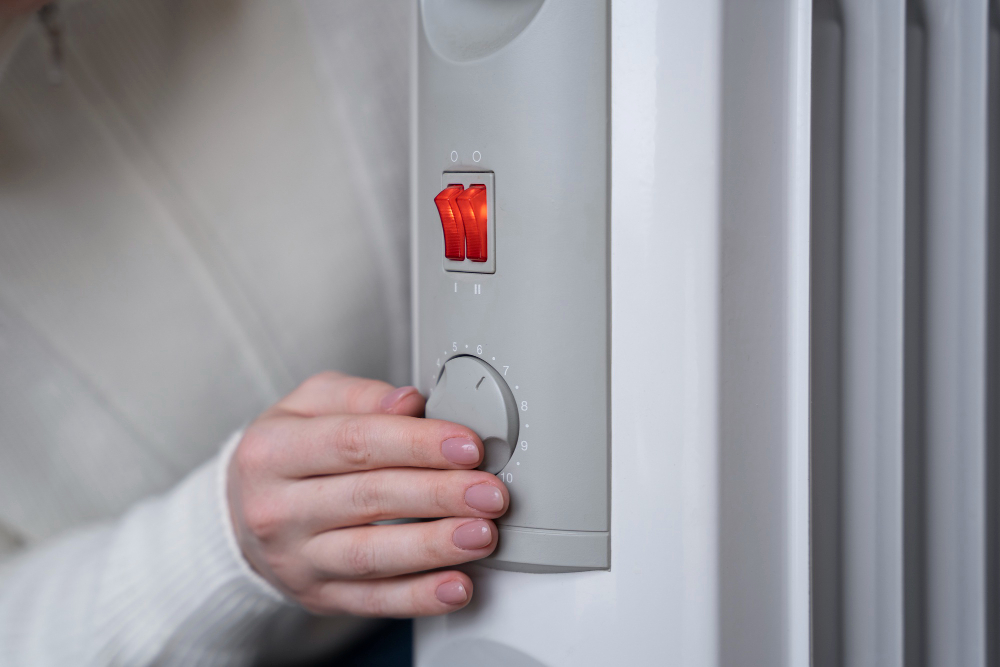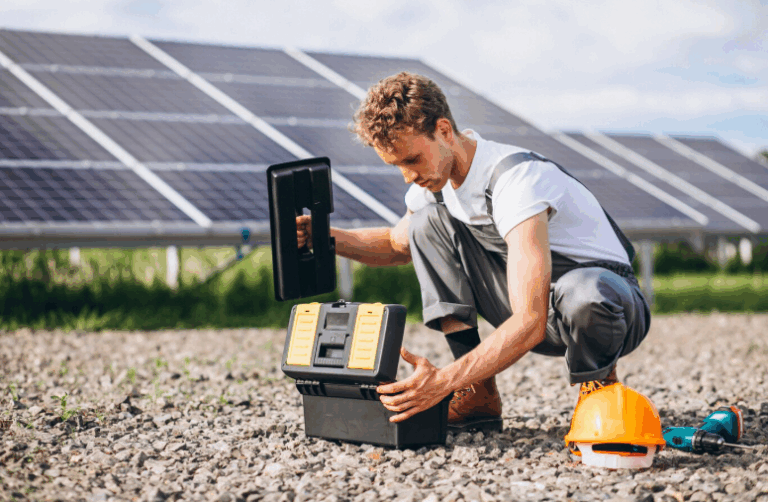Tankless water heaters have become increasingly popular in recent years due to their energy efficiency, space-saving design, and long lifespan. Unlike traditional water heaters, tankless models heat water on demand, providing hot water when you need it without the need for a bulky storage tank. However, installing a tankless water heater can be a complex process that requires careful planning and professional expertise.
In this article, we will provide you with essential tips for installing a tankless water heater in your home. From choosing the right size for your household to maintaining your system, we will cover everything you need to know to ensure a successful installation and optimal performance. Whether you are a DIY enthusiast or planning to hire a professional plumber, our guidelines will help you make informed decisions and avoid common installation pitfalls.
Hiring a Professional Plumber for Installation
Looking to have a pro handle your tankless hot water system setup? Here’s what you need to know. One of the most important things to consider when hiring a professional plumber for tankless water heater installation is their experience and expertise. Tankless water heaters can be complex systems that require specific knowledge and skills to install properly. It’s important to find a plumber who has experience working with tankless systems and can provide you with references and examples of past installations they’ve completed successfully.
Another important factor to consider is the plumber’s licensing and insurance. You want to make sure that the plumber you hire is licensed to work in your state and has insurance to protect your property in case of any accidents or damages during the installation process. It’s also a good idea to get a written estimate from the plumber before the installation begins, so you can have a clear idea of the costs involved and any potential additional expenses that may arise during the installation. By taking these factors into consideration and hiring a qualified and experienced professional, you can ensure that your tankless water heater is installed safely and efficiently.
Choosing the Right Size for Your Home
Make sure your home has the perfect fit for endless hot showers with the right size tankless water heater. Choosing the right size for your home is crucial in ensuring that you have a continuous supply of hot water without any interruption. A tankless water heater that is too small for your home will struggle to meet the demand, leading to lukewarm water and inconsistent water pressure. On the other hand, a tankless water heater that is too big for your home will be a waste of energy and money.
To determine the right size of tankless water heater for your home, you need to consider the number of people in your household and their hot water usage habits. A household with a large family will require a larger tankless water heater than a single person living alone. You should also consider the number of hot water appliances in your home, such as showers, bathtubs, and washing machines. By taking all these factors into account, you can find the perfect size tankless water heater that will meet your hot water needs efficiently.
Preparing Your Home for Installation
Get ready to start transforming your home into a cozy, warm oasis with some simple prep work before the new hot water system arrives. First, clear the area where the tankless water heater will be installed. Remove any clutter or objects that may obstruct the installation process, and make sure the space is easily accessible for the installer. Additionally, it’s important to ensure that the area is well-ventilated and free of any flammable materials.
Next, you’ll want to make sure that the existing plumbing connections are in good condition. This includes checking for leaks or any signs of damage, as well as ensuring that the pipes are properly insulated. If you’re unsure about the condition of your pipes, it’s a good idea to have a professional plumber inspect them before the installation process begins. Finally, make sure that there is adequate electrical and gas supply for the new system, and that the necessary permits and inspections have been obtained. By taking these simple steps, you can ensure a smooth and successful tankless water heater installation.
Maintaining Your Tankless Water Heater
Maintaining your new system is essential to ensuring its longevity and efficiency, so be sure to follow these simple steps to keep it running smoothly. First and foremost, it is important to regularly flush out any mineral buildup that may occur in the system. This can be done by either hiring a professional or doing it yourself with the help of a flushing kit. Flushing the system will not only improve the performance of your tankless water heater but also extend its lifespan.
Another important maintenance tip is to regularly check the air filter and clean or replace it as needed. A dirty air filter can cause your system to work harder than necessary, leading to higher energy bills and potentially damaging the unit. Additionally, inspecting the unit for any leaks or damage and addressing them promptly can prevent larger issues from arising in the future. By following these simple maintenance steps, you can ensure that your tankless water heater continues to provide hot water efficiently and effectively for years to come.
Troubleshooting Common Issues
Now that you’ve got your new tankless water heater system up and running, it’s important to know how to troubleshoot common issues that may arise. One of the most common issues is insufficient hot water. This may be caused by several factors, including low gas pressure, a dirty or clogged air intake filter, or a malfunctioning thermostat. To address low gas pressure, check the gas valve, which should be fully open. If the air intake filter is dirty or clogged, clean or replace it. If the thermostat is malfunctioning, it may need to be replaced by a professional.
Another issue that may arise is a system error code. If your tankless water heater displays an error code, consult the manufacturer’s manual for troubleshooting guidance. In some cases, you may be able to fix the issue yourself by resetting the system or cleaning the intake filter. However, if the issue persists, it’s best to call a professional plumber or HVAC technician for assistance. Remember, regular maintenance and prompt attention to any issues will help ensure the longevity and efficient operation of your tankless water heater system.
Frequently Asked Questions
How much does it cost to install a tankless water heater?
Installing a tankless water heater can be a cost-effective decision for homeowners. The cost of installation can vary depending on several factors such as the type of unit, the complexity of the installation, and the location of the installation. On average, the cost of installing a tankless water heater ranges from $1,500 to $3,000. However, it is important to note that the initial cost may be higher than a traditional water heater, but the long-term savings on energy bills can make up for the difference. Additionally, hiring a professional to install the tankless water heater is highly recommended to ensure proper installation and avoid any potential safety hazards.
Can a tankless water heater be installed outside?
A tankless water heater can indeed be installed outside, but it’s important to take a few factors into consideration before doing so. First, you’ll need to ensure that the unit you choose is specifically designed for outdoor use. This will typically be indicated in the product description or specifications. Additionally, you’ll need to think about the climate in your area and any potential exposure to the elements. If you live in an area with harsh winters, for example, you may need to take steps to protect the unit from freezing temperatures. Finally, you’ll want to make sure that the tankless water heater installation is done by a professional who has experience with outdoor tankless water heaters. With the right precautions, though, an outdoor installation can be a great solution for homeowners who don’t have space for a traditional indoor unit.
Are tankless water heaters more energy efficient than traditional water heaters?
Tankless water heaters are generally more energy efficient than traditional water heaters. This is because they only heat water when it is needed, rather than continuously heating and storing a large tank of hot water. This also means that they can save homeowners money on their energy bills. Additionally, tankless water heaters have a longer lifespan than traditional water heaters, which can also save homeowners money in the long run. However, the initial cost of purchasing and installing a tankless water heater can be higher than a traditional water heater. Overall, if energy efficiency and long-term cost savings are a priority, a tankless water heater may be a good investment.
What is the lifespan of a tankless water heater?
The lifespan of a tankless water heater is typically longer than a traditional water heater, lasting up to 20 years with proper maintenance. Unlike traditional water heaters that store and constantly heat a large amount of water, tankless water heaters heat water on demand, reducing the wear and tear on the unit. Additionally, tankless water heaters have replaceable parts, allowing for easy repairs and extending the lifespan of the unit even further. Overall, investing in a tankless water heater can provide long-term cost savings and reliable hot water for years to come.
Do tankless water heaters require a water softener?
Tankless water heaters do not necessarily require a water softener, but it is highly recommended. Hard water contains minerals that can build up in the heater and cause damage over time. This build-up can decrease the efficiency of the heater and ultimately lead to costly repairs. Additionally, hard water can cause scaling and clogging of the pipes leading to the heater, which can also decrease efficiency. Therefore, while a water softener may not be a requirement for a tankless water heater, it is certainly a wise investment to protect and prolong the life of your appliance.
Conclusion
In conclusion, installing a tankless water heater in your home can provide numerous benefits, including energy savings and endless hot water. However, it is important to hire a professional plumber for installation, choose the right size for your home, prepare your home for installation, and properly maintain your tankless water heater to ensure its longevity and efficiency.
By following these tips and troubleshooting common issues, you can enjoy the convenience and cost savings of a tankless water heater for years to come. Don’t hesitate to contact a professional plumber for assistance with installation or maintenance, as they have the expertise and experience to ensure your tankless water heater operates at its best. Upgrade your home’s hot water system today with a tankless water heater!





